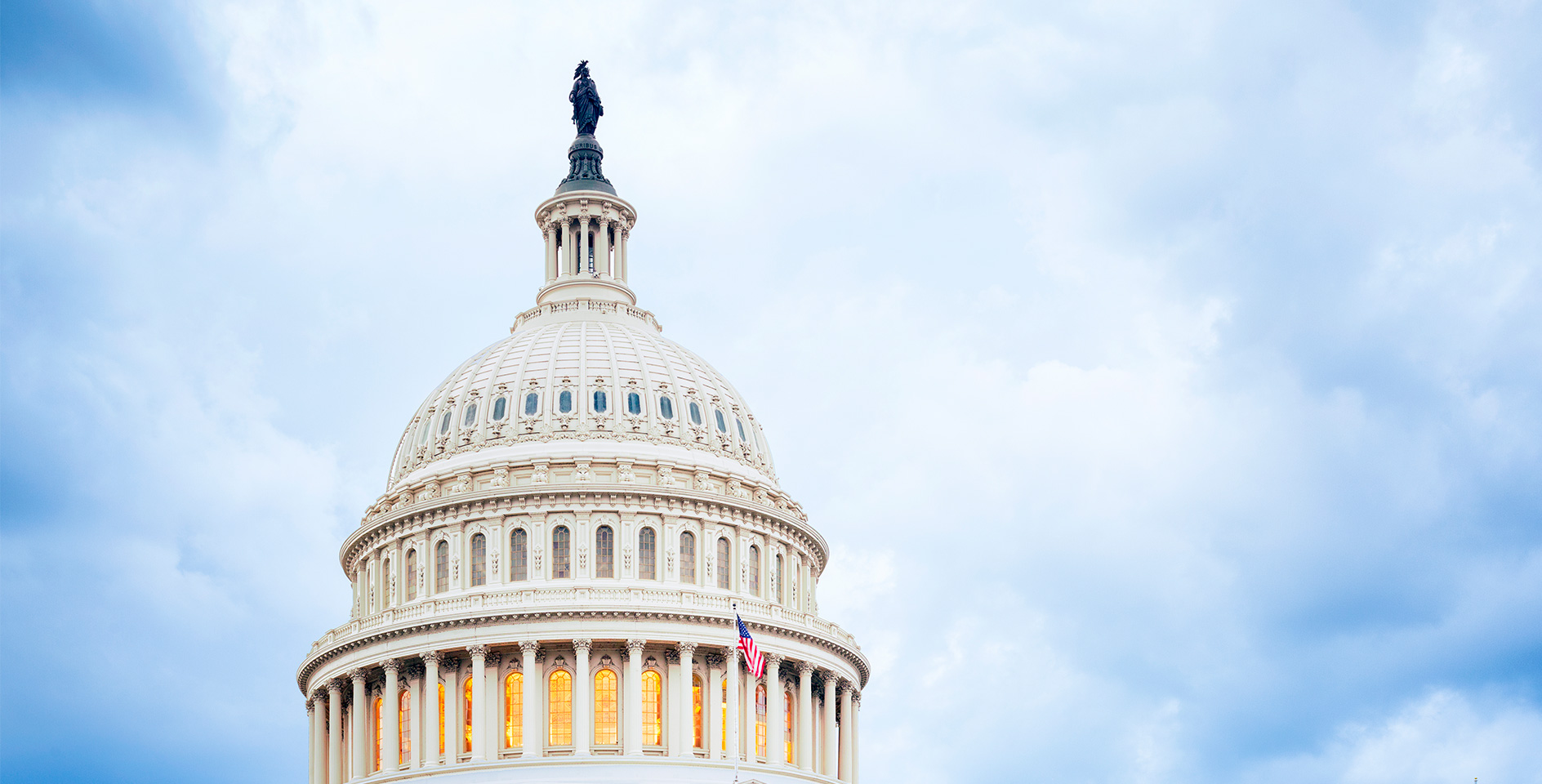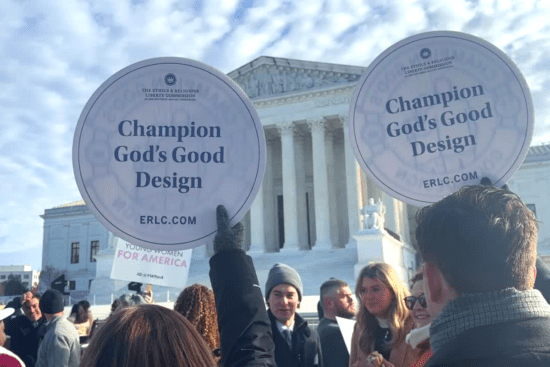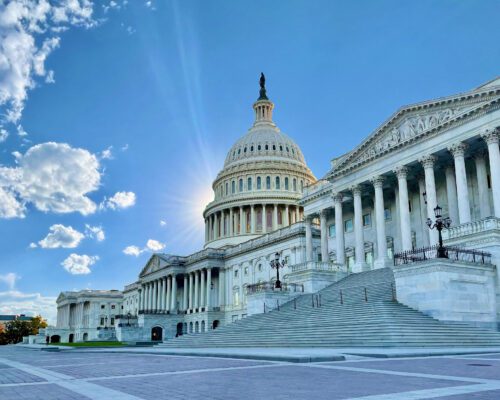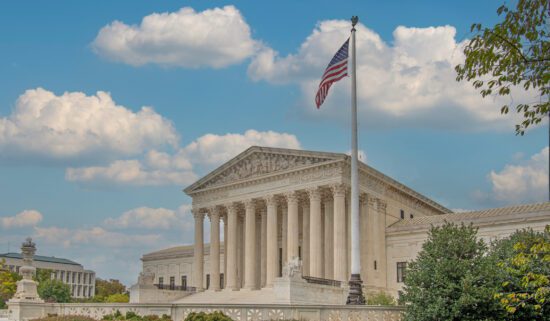Public policy advocacy is one of the many ways the ERLC fulfills its ministry in the public square. We are excited to release today our 2017 Legislative & Public Policy Agenda. Here, we highlight 10 of our top priorities for 2017. The items below include advocacy before the U.S. Congress, before federal agencies, and before the federal courts.
Although the Republican Party captured the White House in 2016, the GOP now controls only 52 seats in the Senate, two fewer than the last Congress. Due to a 60 vote minimum for most legislation, we expect the Senate to be a major obstacle for advancing a pro-life and pro-religious liberty agenda. Indeed, the composition of the Senate was the main driver for the failure of many initiatives the ERLC supported in the previous congressional session. With a narrower margin in the Senate for the 115th Congress, significant challenges remain, even with a Republican president.
Some of these issues have been a part of the ERLC’s legislative agenda for the last several years; other issues are new and a product of the political moment in which we find ourselves.
We are already hard at work pressing this agenda forward. We have had productive meetings with President-Elect Trump’s transition team, as well as leadership in the House and Senate. It is worth noting that these proposals line up with the pro-life commitments President-elect Trump made as a candidate in September of last year. We have a number of opportunities in the coming two years, and our public policy team will be working hard to represent Southern Baptists in Washington, D.C.
1. Appointment of a pro-life Supreme Court nominee
The untimely passing of Justice Antonin Scalia in early 2016 left the Supreme Court with an uncertain future. Given the current makeup of the Court, the proposed nominee—and the convictions that he or she holds—will play a critical role in future Court decisions that will, in turn, shape American life. The ERLC will press for a Supreme Court nominee who, among other things, rightly objects to the so-called constitutional right to abortion and who will carry the mantle of Justice Scalia’s legacy.
2. Defund Planned Parenthood
The Center for Medical Progress’ excellent investigative journalism has revealed that Planned Parenthood has trafficked in baby parts and is actively working to stimulate demand for abortion in the United States. The ERLC has been and remains committed to ensuring that the nation’s largest abortion provider, Planned Parenthood, is deprived of federal funds.
3. Repeal the HHS Mandate
We will work with both the Department of Health & Human Services and Congress to eliminate the Obamacare provisions that force employers—including churches, educational institutions, and religious nonprofits—to provide FDA-approved contraceptives, including abortion-inducing contraceptives. We have fought this rule in the courts, and will continue to work toward full legislative and regulatory repeal.
4. Pain Capable Unborn Child Protection Act
Currently, the U.S. is one of only seven nations in the world that allows elective abortions after 20 weeks post-fertilization. The Pain Capable Unborn Child Protection Act would prohibit the performing (or attempted performance) of abortions on babies at 20 weeks or greater gestation, except in cases of rape, incest, or to save the life of the mother. In the previous congress, the bill passed the House but failed in the Senate. We will push for both chambers to reconsider the bill this year.
5. First Amendment Defense Act (FADA)
FADA prevents the federal government from punishing an individual or faith-based business because they cannot in good conscience accommodate same-sex marriage in certain situations. Citizens at risk include businesses, adoption/foster care agencies, government contractors and grant recipients, and religious institutions–including higher educational institutions and their students.
6. No Taxpayer Funding for Abortion Act
In the aftermath of Roe v. Wade, the Hyde Amendment was introduced to prevent taxpayer dollars from being spent on abortion. Since its enactment in 1976, congress has passed the amendment as a temporary rider which expires each year. The No Taxpayer Funding for Abortion Act would codify the Hyde Amendment by prohibiting federal funds from being expended for abortion or health coverage that includes coverage for elective abortion.
7. Civil Rights Uniformity Act
One legislative response to unfounded interpretations of the words “sex” and “gender” by federal agencies (for instance, the Department of Education) is the Civil Rights Uniformity Act. This act would require the approval of Congress before “gender identity” is treated as a protected class in Federal Law or Policy, thus preventing such policies from being fabricated by Executive Branch bureaucracies.
8. Protect the consciences of pro-life healthcare professionals
The ERLC will continue to support the Conscience Protection Act and other legislative tools that seek to protect pro-life citizens who work in the healthcare industry. It is an unconscionable breach of conscience when pro-life healthcare workers are forced to participate in abortions and other medical procedure which conflict with their religiously informed conscience.
9. The Born Alive Abortion Survivors Protection Act
Federal law does not adequately protect a born child who survives a failed abortion. In that moment, such children deserve all of the medical care possible. The Born Alive Abortion Survivors Protection Act would amend the federal criminal code to require any health care practitioner who is present when a child is born alive following an abortion or attempted abortion to 1) exercise the same degree of care as reasonably provided to any other child born alive at the same gestational age, and 2) ensure that such a child is immediately admitted to a hospital.
10. Criminal justice reform
In a show of true bipartisanship, this past Congress both Democrats and Republicans came together to work on a package to reform the American criminal justice system. The ERLC will once again push for the consideration of the Sentencing Reform and Corrections Act. The bill takes a targeted, nuanced approach at reducing certain mandatory minimums while also directing the Department of Justice to expand recidivism reduction programming in partnership with nonprofit and faith-based organizations.













